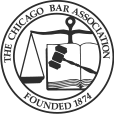
Navigating the Complexities of Rideshare Liability in the Windy City
Ridesharing has revolutionized the way people travel. With just a few taps on a smartphone, riders can connect with a network of drivers to take them to their desired destination. But as ridesharing has become increasingly popular, so have accidents involving these vehicles, raising unique questions about liability and compensation. Unfortunately, rideshare drivers often fail to share the road and obey traffic laws in their hurry to get as many fares as possible. For instance, it's far too common for Uber or Lyft drivers to pull over in the bicycle lane and block cyclists or open a car door into a cyclist's path.
The circumstances surrounding rideshare accidents are unlike those of other car accidents, and it is essential to understand the nuances involved in handling such cases. Additionally, as rideshare continues to grow in popularity, it is crucial to understand the implications for those involved in a rideshare accident. Whether you were in a car, on a bike, or on foot, knowing what to do if you're hit by an Uber or Lyft driver can help ensure you receive the compensation you deserve.
How Insurance Applies to Rideshare Accidents
Uber and Lyft drivers are typically independent contractors, not employees of the rideshare company (although this is an evolving area of law). They drive their own cars and are required to have their own private auto insurance. However, most personal auto insurance policies do not cover "driving for profit," so the rideshare companies provide supplemental coverage for their drivers.
Which insurance applies depends on the driver's status at the time of the accident:
- If the driver is signed out of the rideshare app, then they are considered off duty. Their personal auto insurance applies. Put another way, an accident involving an off-duty Uber or Lyft driver is no different from any other car accident.
- If the driver is signed into the app and awaiting a ride request, but has not yet accepted a ride request, then either the driver or the rideshare company must carry liability insurance in the amount of $50,000 for injury to a single person, $100,000 for injuries to multiple people in the same accident, and $25,000 for property damage.
- If the driver has accepted a ride request and is driving to pick up, transport, or drop off a passenger, then the rideshare company's full insurance applies. That includes $1 million in liability coverage for personal injury, death, and property damage, as well as $50,000 in uninsured/underinsured motorist coverage.
One of the reasons rideshare cases can get tricky is that the driver's status at the time of the accident is not always clear. If you were a passenger in the Uber or Lyft vehicle, then of course you know the driver was on duty. But if you were hit by an Uber or Lyft driver while you were walking, biking, or in another car, their on-duty status may not be known. That's why you need to pay close attention to what the driver says and does at the scene — and why you need an experienced attorney to help sort it out.
Is Uber or Lyft Liable for a Rideshare Accident?
Technically, the answer is usually no. Because rideshare drivers are independent contractors rather than employees, the rideshare company is usually not directly liable for an accident caused by one of their drivers, although there are exceptions. As such, you typically would file a claim against the driver rather than against the rideshare company directly. But if the driver was on duty at the time of the accident, then the rideshare company's insurance should pay for it.
Factors That Can Impact Compensation in a Rideshare Accident
There are many factors that can affect amount of compensation you can get for a rideshare accident, but the two big ones are the insurance coverage and the severity and effects of your injuries. As discussed above, whether the rideshare driver was on-duty or off-duty can make a dramatic difference in the amount of available insurance, and sometimes that turns on the exact moment a rideshare request was accepted or cancelled. Moreover, the greater the severity of your injuries and the greater their impact on your life, the more compensation you may be able to recover — but that also gives the insurance company a bigger incentive to fight back.
Whether you're dealing with the rideshare driver's insurance company, the rideshare company's insurance company, or both, you can rest assured that their adjusters and attorneys will fight to reduce the amount of compensation you can receive. An experienced rideshare accident lawyer can fight back.
Contact a Chicago Rideshare Accident Lawyer
If you've been injured in a rideshare accident, the situation can be chaotic. During this time, it is critical to seek the guidance of an attorney who has experience successfully handling rideshare cases. From working with insurance companies to negotiating with rideshare companies, an attorney can help you get the support and financial compensation you deserve.
If you were injured in a Chicago rideshare accident, contact us online to schedule a free, no-obligation consultation, or call us at 833-CALL-KLO. We have dedicated office staff and live operators who can take your call 24/7.







